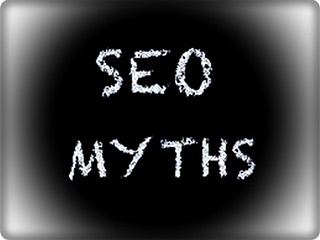Section 1: Introduction to SEO Myths
Search engine optimization (SEO) is the practice of optimizing a website to improve its visibility and organic rankings on search engine results pages (SERPs). However, there is an abundance of misinformation and myths surrounding SEO that can lead to ineffective strategies and wasted efforts. Let’s explore and debunk some of the most prevalent SEO myths.
Section 2: Myth 1 - “Keywords Are Everything”
One of the most common SEO myths is that keywords are the be-all and end-all of optimization. While keywords are undoubtedly crucial, focusing solely on keyword density or stuffing them into every possible area of your website can actually harm your rankings. Search engines have become much smarter in understanding content context and user intent.
In the past, keyword density was emphasized, but today, search engines have become more sophisticated. Keyword stuffing can actually harm your SEO efforts. It's more important to focus on producing high-quality, relevant content that naturally incorporates keywords.
Instead of obsessing over specific keywords, it’s essential to create high-quality, relevant content that provides value to your audience. Focus on using natural language and semantic variations of your target keywords to ensure a comprehensive coverage of your topic.
Section 3: Myth 2 - “Meta Tags Influence Rankings”
Meta tags, including title tags and meta descriptions, provide information about a webpage to search engines and users. However, contrary to popular belief, they do not have a direct impact on search engine rankings. While meta tags may influence click-through rates (CTR) and user experience, search engines primarily rely on the actual content of your webpage to determine its relevance and ranking.
While meta tags such as title tags and meta descriptions are important for providing information to search engines and users, they are not the sole determining factor for ranking. Search engines consider various other factors like content quality, user experience, and backlinks.
That said, it’s still essential to optimize your meta tags to entice users to click on your search result. Craft compelling titles and meta descriptions that accurately represent the content on the page, enticing users to visit your website.
Section 4: Myth 3 - “Link Building is Dead”
With the rise of algorithm updates and penalties targeting spammy link building practices, many believe that link building is no longer relevant or effective. However, this is a misconception. While low-quality link building tactics can harm your website’s credibility and rankings, earning high-quality backlinks from authoritative websites remains an integral part of SEO.
Instead of focusing on quantity, prioritize quality when it comes to link building. Seek opportunities for natural link acquisition through guest blogging, influencer outreach, or creating valuable content that others will naturally want to link to.
Section 5: Myth 4 - “SEO is a One-Time Effort”
Some website owners mistakenly believe that SEO is a one-time task that can be completed and forgotten. In reality, SEO requires ongoing effort and regular maintenance to stay ahead of the competition. Search engines continuously update their algorithms, and new competitors may emerge in your industry.
SEO is an ongoing process that requires continuous effort. Optimization techniques need to be regularly updated to align with search engine algorithm changes. Consistently monitoring and improving your website's SEO is essential for long-term success.
SEO is a long-term strategy, and it takes time to see significant results. Building authority, improving rankings, and driving organic traffic require consistent effort and patience. Beware of any promises of instant or guaranteed results, as they are likely unrealistic.
In the past, some SEO tactics involved manipulating search engine algorithms through black-hat techniques. However, search engines have become smarter and now prioritize user experience and quality content. Focus on providing value to users rather than trying to game the system.
Regularly monitoring your website’s performance, analyzing data, and making necessary optimizations are crucial for long-term success. Keep up with the latest SEO trends and make adjustments as needed to ensure your website remains competitive in the search results.
Section 6: Myth 5 - “Social Media Signals Directly Impact SEO Rankings”
While social media can indirectly impact SEO by driving traffic and engagement, there is no direct correlation between social media signals (likes, shares, etc.) and search engine rankings. Search engines primarily consider factors such as backlinks, content relevance, and user experience when determining rankings.
That being said, a strong social media presence can increase brand visibility, attract more visitors to your website, and potentially lead to more backlinks from other authoritative sources. So while social media may not directly influence rankings, it still plays an essential role in your overall digital marketing strategy.
Section 7: Myth 6 - “Paid Ads Improve Organic Rankings”
Another common myth is that running paid advertisements will boost your organic rankings. This is entirely false. Paid ads, such as Google Ads or Facebook Ads, operate independently from organic search rankings.
Paid advertisements, such as Google Ads, can increase visibility and drive traffic, but they do not directly influence organic rankings. Paid ads and organic results are separate entities on search engine result pages (SERPs).
While paid ads can increase your website’s visibility in search results through paid placements or sponsored listings, they will not directly impact your organic rankings. It’s essential to have a comprehensive digital marketing strategy that includes both paid advertising and organic optimization for optimal results.
Section 8: Myth 7 - "Backlinks are the only ranking factor"
Section 8: Conclusion
In conclusion, it’s crucial to separate fact from fiction when it comes to SEO. By debunking these common myths, you can ensure that your optimization efforts are based on accurate information and best practices. Remember to focus on creating valuable content, earning high-quality backlinks, regularly maintaining your SEO efforts, and integrating social media into your overall marketing strategy. By doing so, you’ll be well-equipped to navigate the ever-changing landscape of SEO and achieve long-term success for your website.



